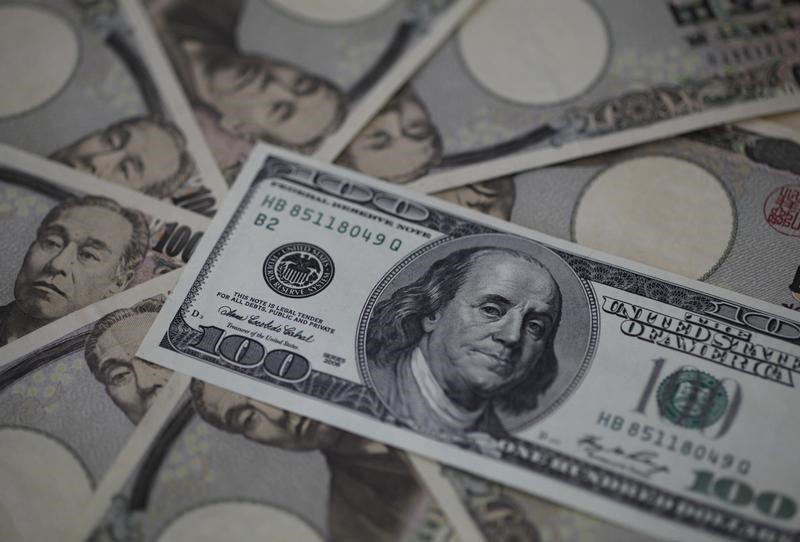 © Reuters. A U.S. one-hundred dollar bill and Japanese 10,000 yen notes are spread in Tokyo
© Reuters. A U.S. one-hundred dollar bill and Japanese 10,000 yen notes are spread in TokyoBy Jemima Kelly
LONDON (Reuters) – The dollar touched a three-month high against the yen on Monday, with investors betting that an emphatic election victory for Japan’s ruling party would see a continuation of the ultra-loose “Abenomics” policy that have kept downward pressure on the yen.
Japanese Prime Minister Shinzo Abe’s ruling bloc scored a big win in Sunday’s election, with his Liberal Democratic Party-led (LDP) coalition winning a combined 312 seats, keeping its two-thirds “super majority” in the lower house, according to media reports.
Abe’s victory eased fears that the economic steps implemented under his leadership, including an expansive asset-purchase program by the Bank of Japan, would be disrupted and would halt the yen’s depreciation against the dollar.
The dollar gained as much as half a percent to reach 114.10 yen after the results, its strongest since July 11. It came off those highs in early dealing in London but was still up 0.3 percent on the day.
“The relatively muted rise in dollar/yen following Abe’s election win is consistent with the fact that this was very much the most expected result,” said BNP Paribas (PA:) currency strategist Sam Lynton-Brown.
“The outcome should be consistent with the market continuing to price static and dovish policy from the BOJ, even in the context of (BOJ Governor Haruhiko) Kuroda’s term coming to an end in April of next year.”
Some analysts said Abe’s emphatic win increased the chances that Kuroda, who is widely considered a policy dove, would be reappointed when his term ends.
“Overcoming deflation with the BOJ easing is at the crux of the Abe administration’s policies and this will now be allowed to continue indefinitely,” said Yukio Ishizuki, senior currency strategist at Daiwa Securities.
“It’s relief over the BOJ policies, rather than hopes for fresh fiscal stimulus, that is weakening the yen.”
The greenback had already gained about 0.9 percent against the Japanese currency on Friday, after the U.S. Senate approved a budget blueprint for the 2018 fiscal year, clearing a critical hurdle for Republicans to pursue a tax-cut package without Democratic support.
Against a basket of six major currencies, the dollar touched a 2-1/2-week high, having recorded its best day in a month on Friday.
Another focal point for the dollar was who U.S. President Donald Trump would appoint as the next Federal Reserve chief.
The euro was 0.3 percent lower at $1.1754, extending losses from Friday when it lost 0.6 percent.
The common currency has drifted lower from a 2-1/2-year peak of $1.2092 scaled on Sept. 8, as hopes for the European Central Bank to take a more hawkish stance have been tempered by speculation that it is not be in a hurry to taper its easy policy.
The ECB holds a policy meeting on Thursday, at which policymakers are seen cutting bond purchases but voting for an extension in stimulus.
Fusion Media or anyone involved with Fusion Media will not accept any liability for loss or damage as a result of reliance on the information including data, quotes, charts and buy/sell signals contained within this website. Please be fully informed regarding the risks and costs associated with trading the financial markets, it is one of the riskiest investment forms possible.
Source: Investing.com



























